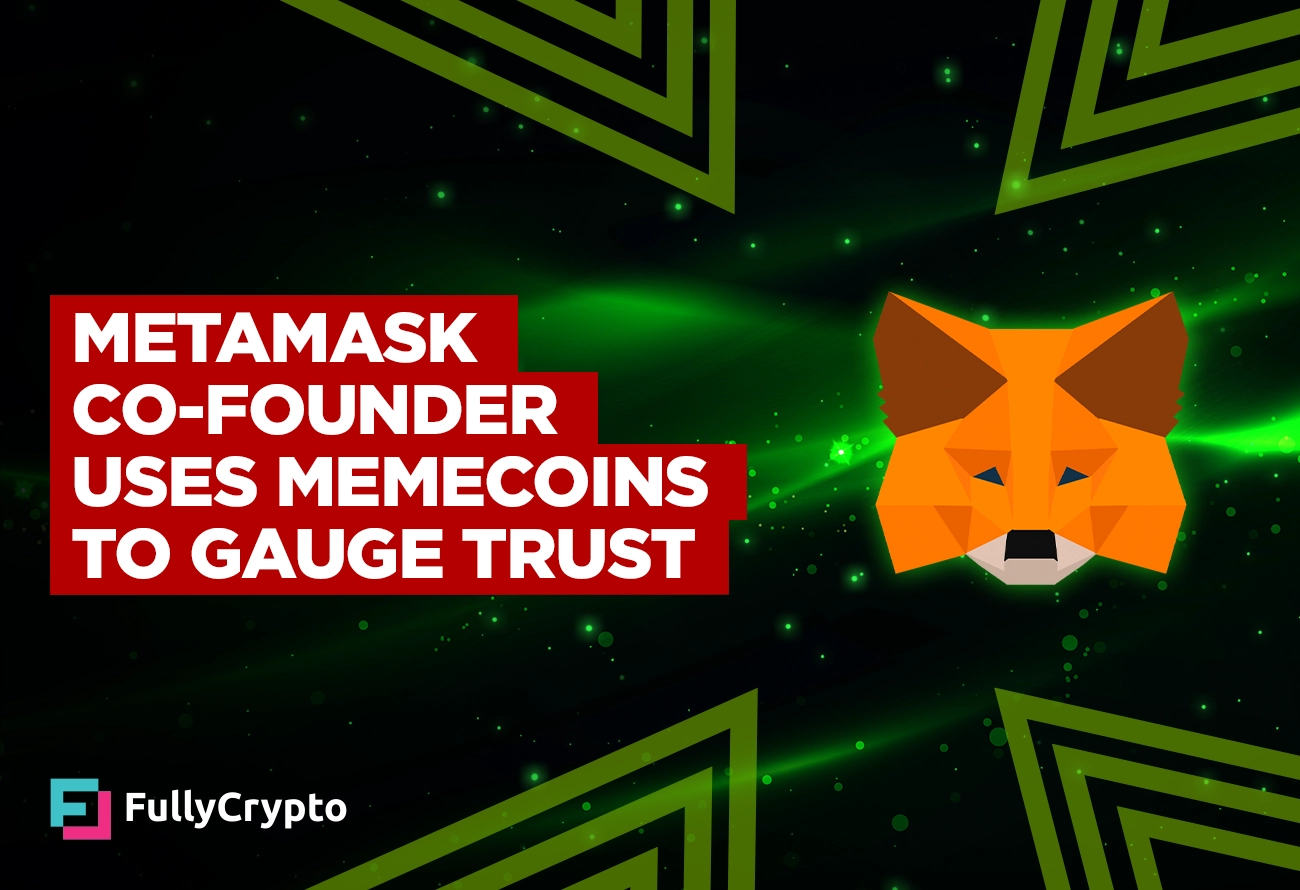![]()
By Philip Maina
3 days agoSun Dec 01 2024 09:30:44

Reading Time: 2 minutes
- MetaMask co-founder launched memecoins to asses web3 investors’ trust
- He found out that there’s a thin line between trust and expectations when investor put their money into memecoins
- He said that the industry needs more quality products
MetaMask co-founder Dan Finlay has launched two memecoins to understand web3 investors’ trust among other things in the crypto ecosystem. From the experiment, Finlay said that some investors are blindly trusting projects that are sometimes “ a pool of toxic waste.” According to Finlay, investors in the wider web3 space are open to putting “their money into something” even when it lacks clear guidelines on what that thing is, an observation that resembles that of Sky Mavis co-founder Jeffrey Zirlin.
Concerned Investors Accused of Being Critics
Finlay disclosed that he launched one memecoin, “Consent,” on Ethereum and the other, “I Don’t Consent,” on Solana. During the experiment, he observed that some web3 projects are “largely concerned with shipping the next compelling product as fast as possible.”
Last night I created an experiment on Farcaster that went farther than intended. What started as platform research revealed truths about incentives, boundaries, consent, and human impact in web3. Some lessons and thoughts on building better systems: https://t.co/KtC8yzJxyD
— Dan FinIay (@danfinlay) November 28, 2024He added that such projects accuse concerned investors of being critics. The MetaMask co-founder also investigated the community’s response to data consent and artificial intelligence (AI).
The results varied depending on the social media platform that the community was on. Those on BlueSky, for example, “have moral concerns” about the impact of AI on artists’ well-being. On consent, Finlay said that most memecoin and web3 investors consent to things they don’t understand.
Finlay Discourages Keeping a “Top Movers” List
Finlay also outlined some mistakes he sees “a lot of web3 applications making today.” They include platforms showing a “top movers” list of tokens on a certain blockchain . According to him, this can be used by malicious actors to lure victims because the liquidity of a coin can be provided by one entity using “many accounts and transactions.”
With Finlay observations coming during a memecoin boom, it’s to be seen whether it’ll affect how memecoin and web3 investors choose projects to invest in.


